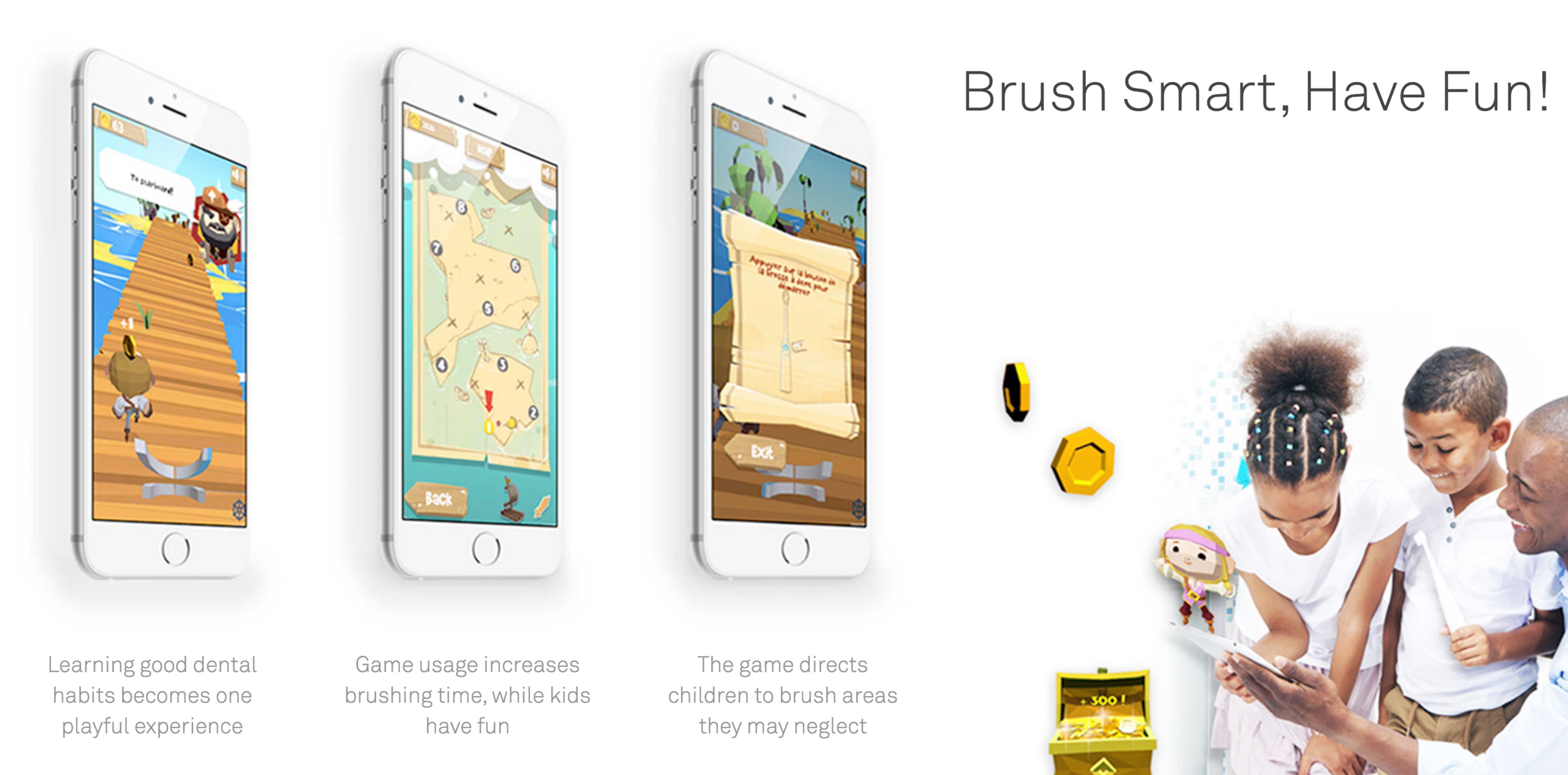Problem: The dental hygiene industry has slowly been evolving for decades: from the first brushing sticks in 3000BC to the invention of the mint toothpaste in 1870 to the first electric toothbrush in 1960. Smart, IoT-enabled toothbrushes are just starting to come in vogue.
Solution: I find the history of toothbrushes and toothpaste to be extremely fascinating: it seems that naturally for over 5,000 years humans have had this desire to clean their teeth. Whether in Egypt, China, or elsewhere the use of “tool-based mouth cleaners” has been consistent for all people in all places. Of course, a side effect of this is greater health benefits (perhaps that’s why it was independently widely adopted).
This business would create an IoT-enabled and/or gamified tool-based mouth cleaner (toothbrush).
Some companies have already entered this space. At CES 2020, for instance, three companies displayed their versions of a smart toothbrush — I describe each below along with it’s criticism:
Oral-B iO: Unfortunately, all this product does is show a picture to display which parts of your mouth that you have or haven’t brushed. The “coolest” feature is that “the iO has multiple cleaning modes and a pressure sensor that tells you if you're brushing too hard -- an important component because many people unknowingly expedite gum recession by brushing too vigorously.”
Colgate Plaqless Pro: Same features as the above product. The only differentiation is a plaque-detecting mechanism. It works “via a light on the underside of the brush head, which makes plaque look blue. The sensor detects those blue areas and knows when they disappear. When you've successfully removed the plaque, the light turns white and you can move onto another part of your mouth. The Plaqless Pro is, according to the company's press release, the first brush available to consumers that has this function.”
Y-Brush: A toothbrush that brushes all your teeth at the same time with a u-shaped, retainer-like tool. Unfortunately, they have yet to undergo clinical trials that determine it’s efficacy. Many bloggers have written about how these mouthpiece toothbrushes do not work.
Kolibree: Same features as brushes 1 and 2 above, but innovate on a gamification aspect for kids. Unfortunately, however, it doesn’t look like gamers can control the game with their toothbrushes; instead kids play the game while they are brushing (with one hand doing each task).
What these products miss is the fact that every set of teeth are unique: rather than just displaying the results of brushing, a true smart toothbrush would adjust to create a better brush. This company would focus on innovating on the existing (and quite frankly embarrassingly bad) “smart” toothbrushes to create an actual product that integrates AI, ML, and dynamic hardware adaption into the daily habit that 70% of all Americans engage in daily.
To gamify the tool, the business would also create an option whereby the toothbrush would be a “controller” for some sort of AI video game in an app that tracks brushing habits and adapts brushing habits accordingly. As I brush, for instance, the AI could run different A/B tests led by the game to see how different brushing techniques affects the final clean of my teeth. Think of it as Temple Run, but with toothbrushes instead of swipes on an iPhone!
As described by Grandview Research,
The global oral care market size was valued at USD 28.0 billion in 2017 and is projected to witness a 5.0% CAGR over the forecast period. Growing awareness about dental hygiene and the rising prevalence of dental caries are expected to drive the market.
Several initiatives are being undertaken by leading industry players in order to spread awareness regarding dental hygiene and good oral health. For instance, in 2015, the American Association of Orthodontists (AAO) collaborated with Crest and Oral-B to generate awareness regarding good oral care habits among orthodontic patients.
Monetization: Selling the software associated with brushing, AI models for other smart toothbrushes, or the toothbrushes themselves.
Contributed by: Michael Bervell (Billion Dollar Startup Ideas)

